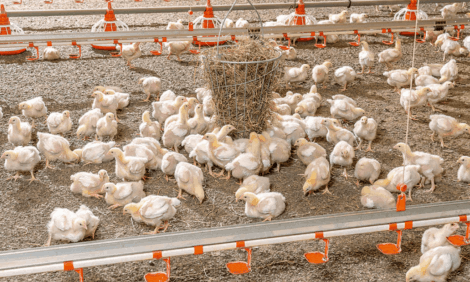



Use of a Protease in Feed Offers Promising Environmental Benefits
Significant benefits were obtained for all the environmental impacts measured by researchers based in Denmark and Switzerland, particularly when the enzyme product was used as a tool to allow for lower diet protein content.Enzymes are widely used in feed to improve utilisation of nutrients and it is generally acknowledged that phytases, by improving phytate phosphorus utilisation, are an important tool to reduce phosphorus pollution and the environmental problems derived from this such as eutrophication. In a paper published recently in International Journal of Poultry Science, K.M. Oxenboll of Novozymes A/S in Denmark and co-authors there and with DSM Nutritional Products Ltd in Switzerland comment that lately, the use of proteases as feed enzymes has gained interest.
Proteases are added to feed with the purpose of increasing dietary protein hydrolysis and thus enabling improved nitrogen utilisation. When animals utilise nitrogen better, there is a possibility to decrease the diet protein content and in turn also reduce the content of nitrogen in manure.
The environmental consequences of decreased dietary protein content and reduced nitrogen excretion were investigated in a Life Cycle Assessment (LCA), which considered all steps in broiler production from production of feed ingredients, to the broilers leaving the chicken house, including the use of manure.
Wide ranges of environmental impacts were analyzed, covering emissions of nitrous compounds to both air and the aquatic environment.
Significant benefits were obtained for all impacts considered, the researchers found. Most important were the benefits related to reduced emissions of ammonia, which help reduce both health risks and environmental impacts, such as acidification and eutrophication. The largest effects were obtained when protease was used as a tool to allow for lower diet protein content. However, even when used in a diet with normal protein level, significant benefits were observed.
Oxenboll and co-authors conclude that the use of protease can contribute significantly to current efforts to reduce nitrogen emissions from livestock production.
Reference
Oxenboll K.M., K. Pontoppidan and F. Fru-Nji. 2011. Use of a protease in poultry feed offers promising environmental benefits. International Journal of Poultry Science. 10(11): 842-848.
Further Reading
| - | You can view the full report by clicking here. |
February 2012











